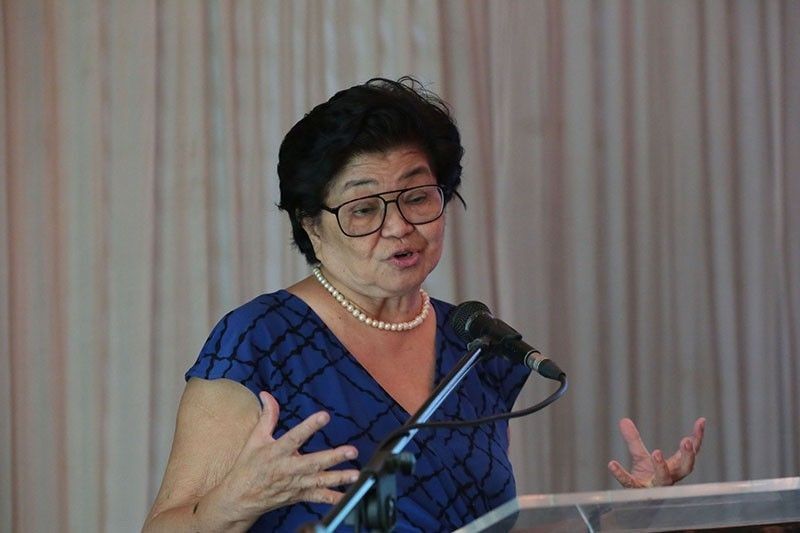Charter change better done ‘structurally’ than piecemeal – NSA

MANILA, Philippines — Amending the Constitution should be done “structurally” – and not piecemeal – given the interdependence of its provisions, National Security Adviser Clarita Carlos told a Senate hearing on shifting to a parliamentary form of government yesterday.
Carlos cited the numerous advantages of the parliamentary system at the resumption of hearings of the Senate committee on constitutional amendments and revision of laws, chaired by Sen. Robinhood Padilla.
They tackled, among others, a resolution seeking to amend only the restrictive economic provisions of the Charter.
But Carlos said the Constitution must be amended as a whole, not by particular sections as some senators want for fear of amendments that would lift term limits.
“I apologize if I go against the notion that you can in fact, revise the Constitution piecemeal, you can, otherwise we will be wasting our time and some of the time we will again, revise the Constitution and we don’t like to do that. It is not revised willy-nilly. We’re changing it because we want structural change. We want structural change, because we want behavior change,” she said.
Carlos stressed that a parliamentary system is more stable as elections or change in leadership — even sudden ones — are more peaceful and simpler compared to the present presidential system as the former is more focused on party and ideology instead of personalities.
“What else does the parliamentary system require? It needs a very, very strong bureaucracy. In parliamentary systems you have what is called permanent secretaries, because it’s not the case here, where when you have a change of administration, you change everybody up to (the position of) director,” she said.
The national security adviser told the committee that a new president in the country invariably has to appoint up to 5,000 officials; but under a parliamentary government, only the heads of ministries will change and the permanent secretaries “will be the ones that will continue the policy.
Under a parliamentary system, the government is headed by the prime minister, who leads the majority party or coalition, while the president is the head of state. The system has the executive and legislative branch fused.
She said elections under such a form of government – particularly the campaigning – would be quicker as the polls would be only at the parliamentary districts unlike the 90-day campaign period for national posts in the country.
During a change in leadership or political majority, the president acts as the bridge between the two administrations, she said.
- Latest
- Trending





























